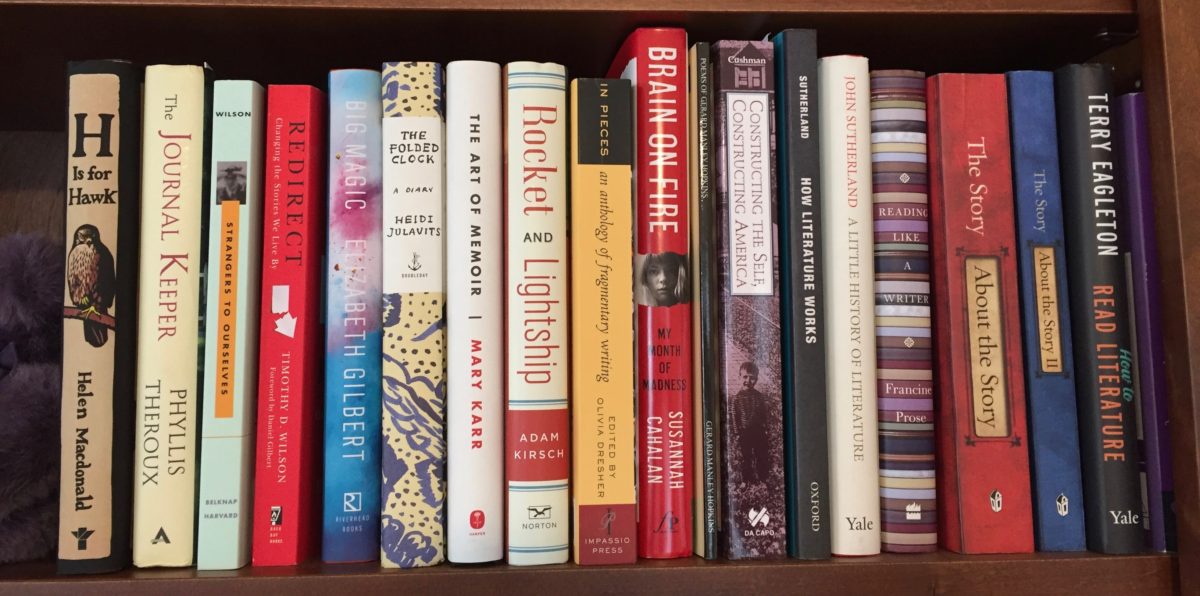Coben, Harlan. Tell No One (2001)
Delacorte, 339 pages, $22.95 hardcover
ISBN 0-385-33555
Recommended
Spoiler Alert!
This review gives away plot details that may spoil the reading experience for you. Proceed at your own peril!
You’ll get a second warning below.
“Don’t start this book at bedtime,” several people told me. “I stayed up all night reading it.”
Indeed, Tell No One is a page turner. The book opens with David Beck and his young wife making their annual pilgrimage to David’s family’s secluded lake property to carve a notch on a special tree on the anniversary of their first kiss. Once they arrive in the woods, David is knocked on the head. The last thing he remembers as he’s passing out is Elizabeth’s screams.
Fast forward eight years. Beck is now a pediatrician in an inner-city health clinic. Elizabeth, we soon learn, was killed that night by the lake. Her body, found a few days later, carried the signature marking of a serial killer known as KillRoy. KillRoy, later convicted of another murder, is now on Death Row. Beck, having never gotten over the loss of his wife, has poured himself into his work.
And then Beck receives an e-mail that suggests Elizabeth might be alive. Further developments bring the police to Beck’s door, since Beck had originally been the prime suspect in Elizabeth’s death despite the lack of any evidence pointing to his guilt. The gripping plot combined with an array of colorful secondary characters keep this book moving rapidly along.
It’s only after you’ve finished the book and know the whole story that you think, “Wait a minute . . . .” After you know the whole story, you realize that the book contains at least three gaping holes, two of which would require Beck, the first-person narrator, to have acted totally out of character.
My mystery book group read this, and everyone agreed: It’s compelling while you’re reading it, but afterwards you can see its flaws. Don’t let that stop you from reading it if you’re in the mood for a good thriller, though. Just don’t start it at bedtime.
Final Warning!
Really!
Stop here if you haven’t yet read this book and don’t want to know how it ends!

There are several plot holes in the story of Tell No One that only become evident after you’ve finished reading the novel:
At the end of the book, we learn that a Vietnam-era draft evader pulled Beck from the lake, carried him to the cabin, and called for help. But early in the book we learn that no one has used the cabin on the family property for years. It’s unlikely that anyone would have been paying the bills to keep a phone working in a cabin that no one ever uses. (The fact that a Vietnam war resistor has been living in the woods all these years also stretches credulity, but we’ll let that one pass.)
Beck says that he had decided to tell Elizabeth about his killing of Scope on the night they went to the woods, but she was abducted before he got around to telling her. Now from the beginning Beck has told us that he and Elizabeth were soul mates, best friends since childhood. The first thing Beck would have done was tell Elizabeth what had happened. It never would have occurred to him NOT to tell her. He wouldn’t have to think about whether he should or shouldn’t tell her.
Beck knew that Elizabeth worked with Scope. When Scope came into the apartment that night, Beck must have figured Scope had come for Elizabeth. Even after killing Scope, Beck would have wanted to tell Elizabeth what had happened so that he could find out why Scope had come looking for her.
When the police confront Beck with the photos of the battered Elizabeth found in the safe deposit box, Beck is clueless. But, knowing that Scope had come after Elizabeth, he’d have to figure that Scope must be the person who had beaten Elizabeth up. It makes sense that Beck wouldn’t want to tell the police about this. However, the author has done nothing to indicate to the reader that Beck is an unreliable narrator . So Coben isn’t playing fairly with us when he lets Beck plead complete ignorance.
Beck says that after killing Scope he went out for a walk while deciding whether to call the police. But Beck is such a straight arrow that the first thing he would have done after killing Scope was call the police and report what had happened. It never would have occurred to him NOT to call the cops; he wouldn’t have had to think about that possibility at all.
© 2002 by Mary Daniels Brown

